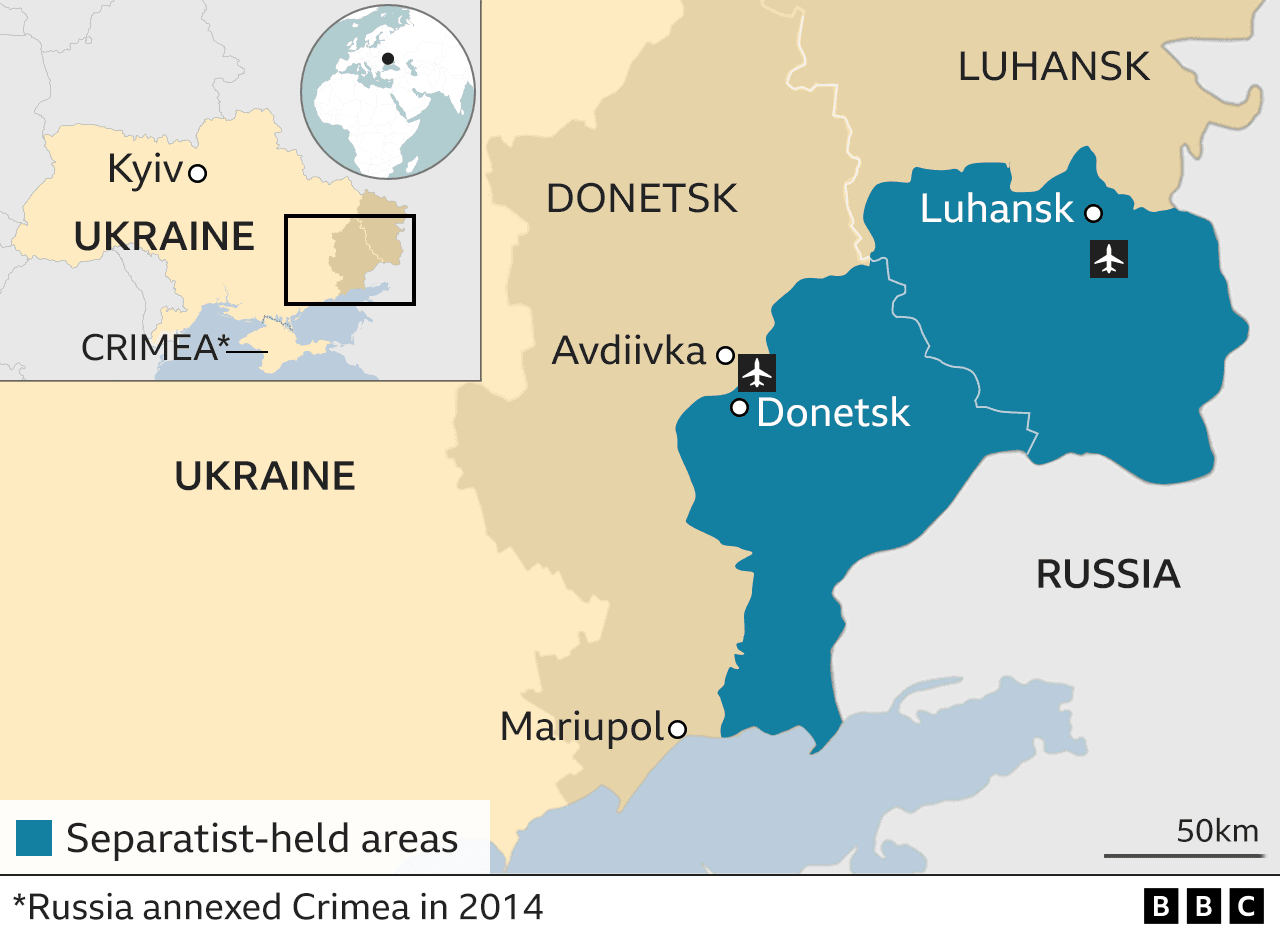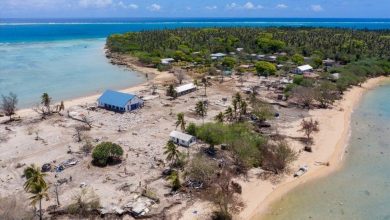Ukraine crisis: War, sickness and love in rebel-held Ukraine
Cancer, a war that has dragged on for eight years, and the threat of a Russian invasion - Larysa is living with them all, with fortitude and humour. We met the 65-year-old queuing in a hangar, at the Novotroitske crossing point in Eastern Ukraine.
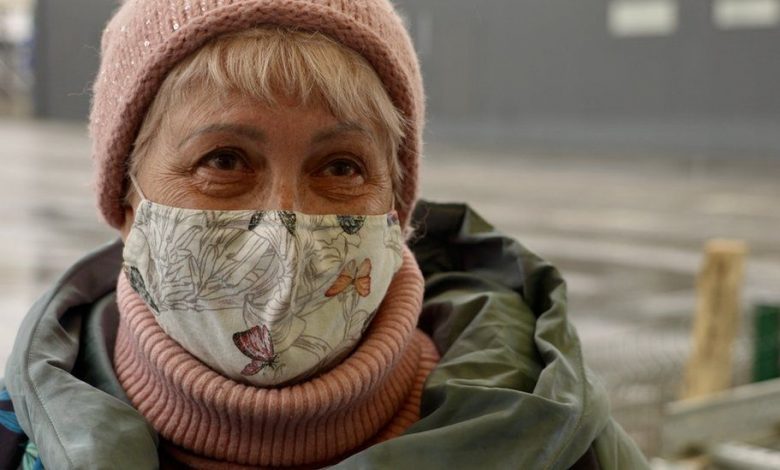
It sits on the “line of contact” – an almost 500km (310 mile) long fissure between Ukrainian government territory and two enclaves that have been held by Russian backed separatists since 2014. Families, communities, and services are divided by this line. The enduring conflict here on the eastern front has already claimed more than 14,000 lives – at least 3,000 of them civilians, according to the United Nations.
The self-styled Donetsk People’s Republic (DNR) and Luhansk People’s Republic (LNR) are recognised by no one – for now, not even the Kremlin – but they are home to about four million people. Larysa is one of them. She was wrapped up against the cold in a bright blue jacket, pink jumper, and matching woolly hat. She preferred not to use her last name.
It takes permission and patience to get from Ukrainian government territory to the other side. Larysa knows the drill. “I do this every six months,” she said. “I have been for a check-up at a hospital in Dnipro (in central Ukraine) and now I am going home to Donetsk.” As she waited for sniffer dogs to check her bag, she wasn’t too concerned about the Russian military build-up on Ukraine’s borders.
- Criss-crossing Ukraine with its president
- Watching for an invasion on Ukraine’s long border
“We have been bombed, and we have been through a lot,” she said.
“I don’t believe there will be an invasion, or if there is, it won’t be a big one. That’s my view as someone with intuition. I watch TV and what politicians say. I think all of this is just to keep us on our toes and stop us from getting too relaxed.”
Perhaps.
But Western leaders have long feared that President Vladimir Putin would fake a crisis in the Russian-backed rebel areas – or the appearance of one – to use as an excuse to invade. The seeds were sewn on Friday when rebel leaders announced that women and children would be evacuated over the border to Russia because Ukraine was planning to attack. Ukraine denied that and most civilians in those areas appear to have stayed put.
“We, the people, do not want any war to happen. We want to live, love… We want to love everybody and give them a hug,” said Larysa, eyes smiling above her mask. With that she boarded a bus to take her through no man’s land to a checkpoint on the other side.
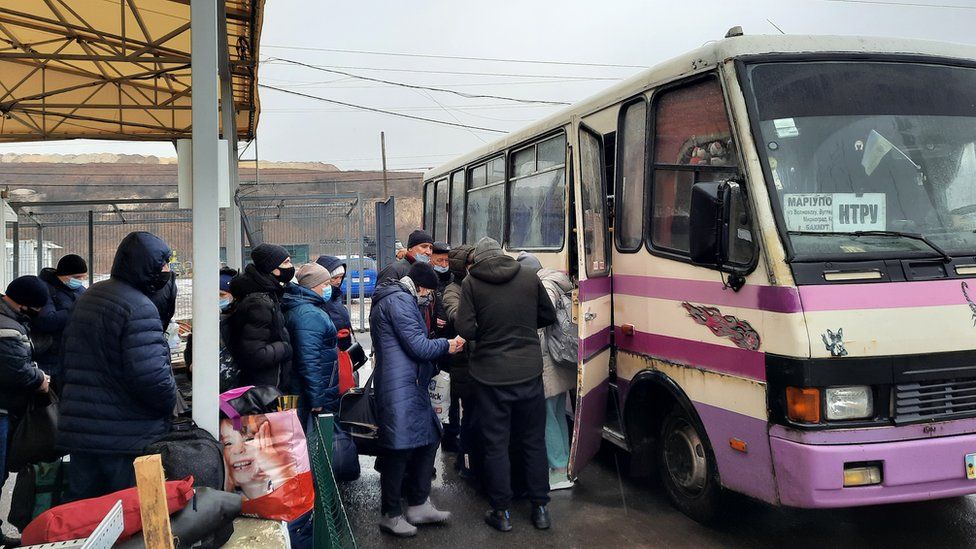
‘I am fed up with the politicians’ war’
Back in the queue 64-year-old Serhiy – smartly dressed in a black jacket and peaked cap – was weary of waiting, and of conflict.
“It has become very hard to get through the checkpoint,” he told me. “Back in the day there was no problem. Now because of the war – or whatever it is – plus Covid, things have gotten much worse.”
The elderly must come out to government-held territory to collect their state pensions. But Serhiy had travelled, like many others, to reunite with loved ones. “I have to get permission, and I need to have an important reason. How important does it need it be?” he asked. “My mother is 86 years old, what other reason do they need?”
Amid the insistent warnings from London and Washington about a Russian invasion, Serhiy is concerned about what may come next.
“Of course, I am worried, “he said. “I am fed up with this war, their war, the politicians’ war. They are the ones who are doing it. The people need peace.” Above his mask, his eyes filled with tears.
As Serhiy headed back home to Donetsk, Svetlana was coming in the opposition direction, under a covered walkway, step by laboured step. The 81-year-old leaned heavily on her walking stick. When pausing to sit on a concrete block, she almost fell over. Her husband Leonid rushed to her side. She was buoyed up by him, and by the visit they had just made.
“It’s our first time in two months. We couldn’t see our children. Our great-grandson was born, but we hadn’t seen him. Now we have,” she told us, with satisfaction.
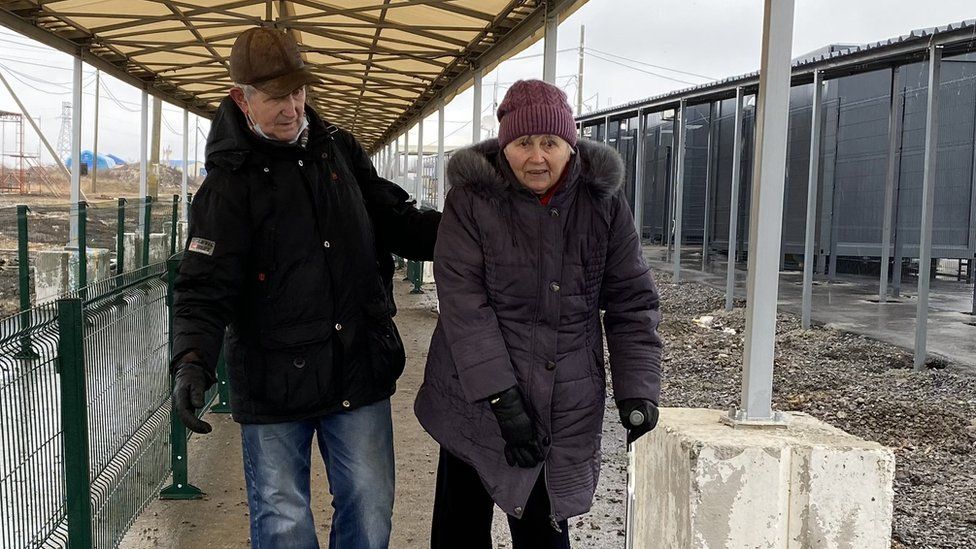
With armed troops, barriers, and identity checks, the Novotroitske crossing point looks and feels like a permanent border. During our visit, we heard the rumble of shelling at frontline trenches a few kilometres away.
“Lately it’s been happening more often,” said Captain Inna Kiishchuk, the deputy commander of the checkpoint. “We have a shelter for people to take cover. We train and we know what to do.”
In recent days there has been an ominous flare up along the frontline, with sniper fire replaced by mortar and artillery fire. Ukraine says separatist fighters have stepped up their attacks because President Putin is trying to provoke a response. The authorities in Kyiv say they won’t fall into his trap.
The Russian leader already controls a chunk of Ukrainian territory – with the separatist enclaves, and the Crimean Peninsula, annexed in 2014. But he appears hungry for more. There are very real fears now for the future of Ukraine and of security in Europe. And if there is an invasion, the first salvos may come here in the east.
